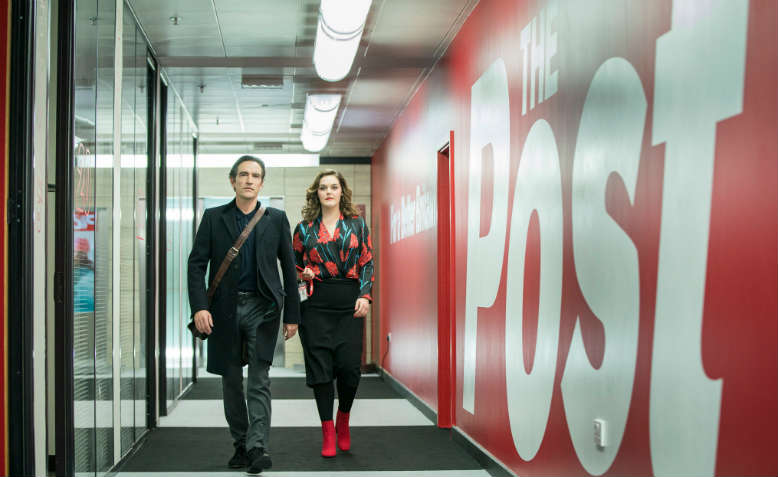 Scene from Press, BBC One
Scene from Press, BBC One
BBC One’s drama, Press, is a tale of anti-establishment dissent and gives a glimpse into the inner workings of the media, argues Sofie Mason
TV is, of course, one of the most effective ways of sedating us. If you’ve run out of opium for the people, schedule a series of The Crown or (groan!) a remake of Dad’s Army. But we have always told stories to make sense of the world so it’s worth looking at the sense being made for us through the modern day morality plays that are our soaps and through the choice of themes tackled in our current dramas. After all, nine in ten people continue to watch TV every week for an average of over 3 hours a day.
Mike Bartlett’s series Press came to a thunderous close last week on BBC One. Two newspapers compete – one with journalists in cuddly jumpers collaborating passionately on exposing corruption and injustice; the other in smart suits stealing each other’s leads in a bid to splash anything gruesome or entertaining that will bag the biggest readership figures. It could so easily have been a disempowering tale of what a muddle the world is and what a shame that the rich and unscrupulous get away with murder.
But it wasn’t. Don’t get me wrong, it was often cheesy and apparently often inaccurate – but it was about dissent. Not revolutionary dissent but certainly anti-establishment. Two competing approaches to news clash spectacularly as we hurtle through declining sales, injunctions, cyberbullying, an oily prime minister courting favour, the breathtaking arrogance of the rich and, finally, the uncovering of a secret government mass surveillance programme.
On the one hand, there is dedicated northern reporter Holly (Charlotte Riley) who digs deep, abhors the laziness of the internet, talks to real people and tries to find the truth under the cover-ups in a stirring homage to true investigative journalism. This is the stuff of Paul Foot and John Pilger. On the other hand, there’s editor Duncan (Ben Chaplin) to whom truth is incidental and the point is entertainment: “I decide what readers are interested in. They have no idea.” And behind Duncan is David Suchet’s Murdoch figure shoring up the status quo for his and his class’ gain.
Both Holly and Duncan wobble. Holly changes over to Duncan’s paper in the hope of more resources. Duncan starts packing up his office in a fleeting moment of regret for the real reporter he used to be but is quickly bribed back into doing the establishment’s dirty work. Much as Marx marvelled at the constant capacity for capitalism to renew and reinvent itself after every crisis, so we cannot help but marvel at Duncan’s capacity to stamp on any stirring of humanity or principle in order to stampede to the top of a sparkling shit heap.
Fake news undermines informed political debate. Post-truth is pre-fascism, as a former head of GCHQ has said, and he should know. Battles will be fought henceforth over who controls the narrative and Press dramatises that battle. Duncan ends up promoted, gloating over his new powers to spin away the discovery that the government is spying on its own people. Will freedom of speech and privacy, let alone accountability, be compromised forever as we sleepwalk into wall-to-wall fake news? Holly remains as determined to topple him in the final frame as Duncan remains determined not to be toppled, and the implication is that either side could win. It may be whistleblowers or journalists or you. Don’t wait for a maverick bodyguard to save the world – save it yourself. That’s fighting talk! Of course, like Bartlett’s Dr Foster, it could well veer off into bat-shit crazy-land if there’s a second series.

